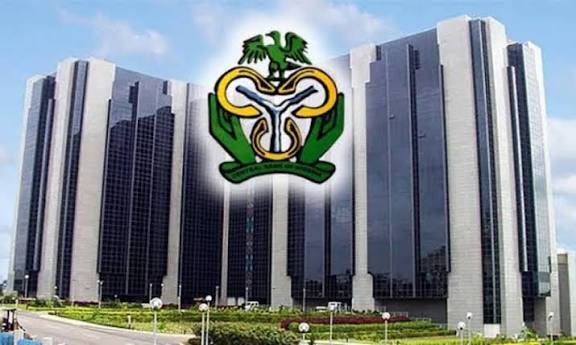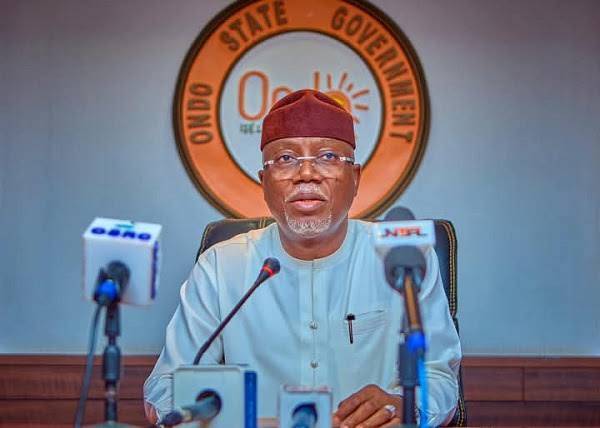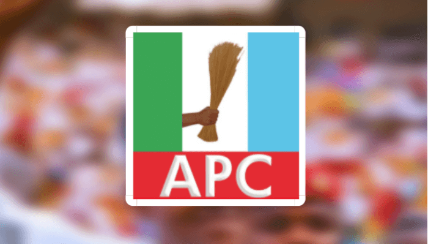By Palladium
A day after the July 4 United Kingdom general election, the results were published and the new prime minister, Keir Starmer of the Labour Party, assumed leadership. No court cases, no controversies. Even before the election, opinion polls had indicated that the ruling Conservative Party would suffer a bloodbath, and the Labour Party would win a clear majority. The polls did not lie, and, to boot, the transition from one party to another was seamless. The seamlessness and immediacy of the transition and the speed with which the results were released have led many Nigerian political analysts, particularly in the newspapers, to inflict on Nigerians what they described as the lessons of the UK elections. The analyses, mostly dishonest or superficial, were essentially a comparison of Nigeria with the UK, with strict reference to the February 23, 2023 Nigerian presidential election.
Nigerian analysts, perhaps with a wistful and censorious gaze cast at what transpired in Lagos during the 2023 polls, especially the ethnic dimension brought into the governorship poll, idolised the freeness, fairness, and multicultural overtones of the UK polls. The analysts reminded everyone that about 30 candidates with Nigerian roots contested the UK polls and eight of them won. They said there were no witch-hunt, no threatening and open fetish practices, and no flagrant inducements. But the English themselves say comparisons are odious. Is Nigeria the UK? And how can anyone scientifically and safely compare unlike terms? The same analysts who decry Nigeria’s lack of nationhood, describing the country as nothing more than a geographical expression, expect their country’s electoral behavior to imitate the UK which over the centuries had imbued itself with all the accoutrements of nationhood before it even became an empire ruling over a quarter of the world at a point. There are copious safeguards in the UK’s political system, and centuries of electoral memory, to guard balloting and elections; yet, the Scots, Welsh and Irish are still rumbling below the surface. Nigeria operates a depersonalised and awkward unitary system that suffocates its supposedly federal components, yet analysts denigrate Nigeria for not resembling or matching the UK.
The UK parliamentary system is anchored on an unwritten constitution, and undergirded by discipline and convention. It practices a democracy that survived many continental revolutions, including notably those of 1848. It has endured centuries of bloodthirsty monarchs, incompetent prime ministers, bloody and sapping wars, and economic depressions far worse than what Nigeria is currently experiencing. They have managed to produce and operate a political system that is unique, imbued with enough tensile strength, and is both flexible and enviable. Analysts can indeed remark the strength and achievements of the British political system as well as admire their electoral democracy; but comparing the UK with Nigeria is misguided and pigheaded. It is bad enough that somehow Nigeria has sentenced itself, partly as a result of its colonial experience, to wholesale copying of alien constitutions, whether presidential, parliamentary or diarchy; or even advocating for coups and revolutions when poll results or economic conditions do not meet their impatient and conceited expectations. The first two systems had produced very poor results, and the third was a stillbirth.
In short, the analysts suggest, though clearly cynically, if not downright derogatively, that Nigeria should learn some lessons from the July 4 UK poll, particularly the art of seamless and unpretentious transition, the idea of multiculturalism that permits everyone to stand for elections wherever they live, and the repudiation of the atavistic culture of deploying fetish objects and ritual sacrifice to disenfranchise ‘unwanted or alien’ voters. But these are not lessons that can be imbibed through motivational speaking. For instance, multiculturalism is an overrated and fanciful term that is almost impossible to apply in Nigeria’s cultural milieu. Without a clear structuration of the concept of national identity and nationhood, it is unclear how more than 250 Nigerian language groups can coalesce into one determined group, especially when they fiercely compete for, and have a metaphysical attachment to, land in an atmosphere of religious divisions and mistrust. Multiculturalism is not doing well in the United States of America, hence the Donald Trump appeal. It is also not faring well in many parts of Europe where right-wing politics anchored on anti-immigration and sometimes racist policies retain constant appeal. Both Pax Romana and Pax Brittanica produced ingenious definitions of citizenship that transcended cultural divisions and sowed the seed of today’s British multicultural politics. Yet, even in the UK, multiculturalism is not considered a permanent feature of its politics, as Brexit amply demonstrated and future eruptions will indicate. Lagos is the closest in Nigeria to the idea of multiculturalism, but even there, in the context of Southwest politics and Lagos politics itself, nothing can be taken for granted. And in any case, what use is multiculturalism when only one part of the country is expected to make that sacrifice? Asking Nigerians to learn from the UK, and showcasing the elections of some eight Nigerians as proof of the sanctity and inevitability of multiculturalism, is wishful thinking. Until Nigeria can produce a coherent and acceptable definition of what it means to be a Nigerian, it is futile to expect Nigeria’s fiercely competitive ethnic nationalities to bell the multicultural cat.
Nigerian analysts also point at the organisational brilliance of conducting the UK poll and the seamlessness and inexpensiveness of the transition, sans judicial interventions, as something to emulate. Yes, there is something to learn there. But the same people who advocated a coup d’etat to preempt the inauguration of the Bola Tinubu administration because of disputed and skewed election results are applauding the smoothness of the UK election. It is obvious that they have not had time to study the UK poll results. First, the UK electoral system is anchored on a first-past-the-post vote to win a constituency seat. The February 23, 2023 presidential election in Nigeria was essentially also first-past-the-post or simple majority, regardless of the votes won by a combination of opposition parties. In the UK, Labour won the election with about 9,731,363, (33.8%) while just four of the other parties – not all the others – won almost 17 million votes. The British had no quarrel with the skewness of the votes nor declared any wish to change the goalpost midway into the poll. Last year, the All Progressives Congress (APC) won the presidential election with 8,794,726 votes (36.61%) to Peoples Democratic Party (PDP) 6,984,520, Labour Party (LP) 6,101,533, and New Nigeria Peoples Party (NNPP) 1,496,687. The combined opposition votes nearly doubled that of the APC. How is this different from the UK results now sold on social media as advanced and flawless politicking? The constant and eternal denigration of Nigeria, the shallowness of analyses on both traditional and social media, and the masking of ethnic and religious exceptionalism under altruistic concepts like multiculturalism do nothing but complicate and ossify Nigeria’s existential dilemma.
For many Nigerians unimpressed by 25 years of unbroken democratic rule, who indeed prefer to accentuate the country’s many electoral faults, and who fail woefully to contextualise Nigeria’s democratic and electoral process, not minding the age of the country and its democracy, are evidently pursuing a private agenda.
They ignore the militating factors of ethnicity and religion, and think that the UK had just performed wonders, while the eternal laggard, Nigeria, is doomed to atavism and retrogression. Decades ago, the United States used to be the poster boy of democracy and electoral fidelity.
None of the praise singers foresaw the advent of President Trump. Worse, though Nigeria has not exactly produced inspiring leaders, either military or elected, none of the domestic denigrators lauding everything British has cared to spare an analysis or two on the slew of inept Conservative prime ministers from David Cameron who told tall stories, to the vacillating Theresa May, and on to the bungling Boris Johnson, the naïve Liz Truss, and the dithering Rishi Sunak. Would Labour’s Skeir Starmer, despite his party’s overwhelming 412-seat dominance in a 650-seat House of Commons, do better? Instead of Nigerian analysts acknowledging that LP and NNPP took votes away from the PDP in the last presidential election, thus paving the way for APC victory, they excoriated the victorious party, questioned, vilified and downplayed the margin of its victory, and bemoaned a political structure that did not admit a run-off. The same analysts now rhapsodised the UK polls, applaud Mr Starmer’s victory, and damn Nigeria for its tardiness in learning great lessons from the masters.
Nigeria’s electoral process and political system are not perfect. Far from it. It is also not clear that even the foundation of Nigeria’s presidential system is durable, given its pretension to federalism when it is in fact a mélange of borrowed and plagiarised ideas alien to any of the country’s civilisations.
President Bola Tinubu is attempting to stitch incremental federalism on this old garment sewn by British colonialists. He will have to take care not to end up with a worse tear. But Europe is also contending with their own constitutional and systemic gargoyles, causing them to oscillate between extreme political ideas ranging from left to ultra-right, and assimilation to extreme nationalism. Who knows what will become of Wales, Scotland and Northern Ireland in the UK in the next few decades, not to say the tapestry of multiculturalism which they are weaving and waving before the world? Deploying a desperate and ingenious coalition of left and centrist parties (New Popular Front and Ensemble alliance), France has had to claw its way back from the vise-grip of Marine Le Pen’s National Rally. It must now contend with a hung parliament, and it will continue to wonder just how long it can hope to fence off the resurgent far-right and nationalists.
Nothing guarantees that Nigeria will soon transcend its crisis and resolve its systemic and political dysfunction. Judging by the contempt with which many Nigerians view their country and the extremism and narrow-mindedness many political leaders and their parties display, it is not certain that unresolved or long-lasting economic and social discontent would not tilt the country over the cliff.
Hopefully, in the nick of time, reason will prevail, and many Nigerians, particularly the ebi’n pawa generation, the entitled Gen Z, and the coterie of inept and detached political leaders luxuriating in perfumed splendour would become amenable to the give and take necessary to obviate the tragedy looming in the horizon. That is if they are not too obsessed with thinking that the grass is always greener on the other side – in the UK, Kenya, and other revolutionary countries.
Culled from The Nation













